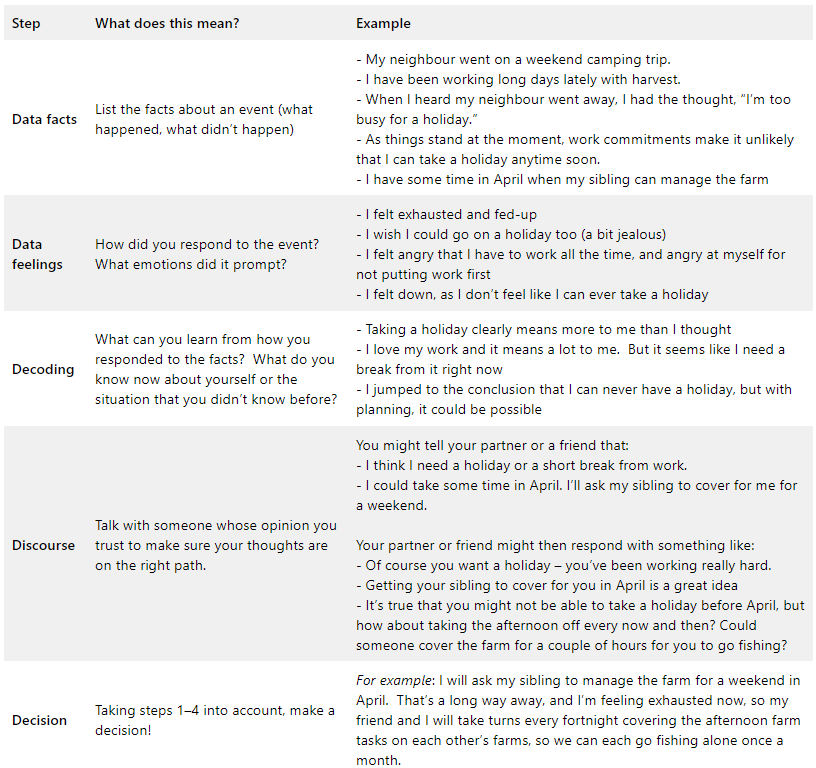By Sonya Duke, Research Assistant at National Centre for Farmer Health
At the beginning of October, I was lucky enough to attend a three-day online leadership forum, run by Farmers for Climate Action. The forum was open to farmers and people from farming communities across Australia, and was attended virtually by people from Victoria, New South Wales, and Tasmania. Everyone there was passionate about their local communities and the central role that farming plays in rural life. It’s a testament to the engaging facilitator and interesting participants that the three days of Zoom passed in a flash, and I was left wanting more!
The training taught us skills that are helpful for any type of leadership role. Of course, everyone present was also united by a love of the land, the valuable contribution rural Australia makes to Australia more broadly, and keeping rural communities thriving in times of change. The skills we learned, however, could be applied to just about any leadership role – whether as a farm manager, small business owner, or someone passionate about improving rural healthcare.
We learnt about:
- Change – why do some people love it, others resist it, and what makes groups of people adopt new behaviours
- Understanding your own vision and how to put this into practice
- What makes teams perform well
- What is power, and understanding (and using) your own power
- Strategic planning, and talking to others about visions of the future
- Media training
We also heard from a variety of accomplished and inspiring speakers from federal, state, and local government, including (amongst others) Cathy McGowan AO and Judy Brewer AO. They provided useful information on how to successfully engage with your political leaders and the political system.
What I would like to share today is something that we can all apply in our own lives. It can help us make better decisions – no matter whether our goals are small-scale or large-scale. It is the 5D reflective thinking process.
Let’s take a light-hearted example. Say that you recently heard that your neighbouring farmer went for a weekend camping trip in the Grampians. You looked out your window (or from the harvester, as things have been too busy to be at home lately), and thought, “I’d never have time for that. I’m too busy.” And then you quickly pushed down your secret desire to get off-farm and have a trip away. In this situation, the 5D reflective thinkingprocess would look something like this:

The 5D reflective thinking process resonates with me, as it speaks to the Mental Health for Ag project that I am currently working on. The 5D reflective thinking process could help when filling out the change and goals section of “Steering Straight: My Plan to Keep on Track.” Whether you aim to make change in your daily life, on your farm, or in your community, the 5D reflective thinking process shows that it is important to:
- Think first about the facts
- Check in with your emotions (i.e. gut reaction)
- Learn something new about the situation and/or yourself from your reaction to the situation
- Share your thoughts with someone you trust
And only then do you make a decision! This process can help keep us clear-minded when a situation might be challenging, new, or overwhelming. It is a good way of “getting out of your own head” and seeing things for how they really are. It also encourages us to connect with others, and show them we value their opinion. And it’s when we can see things clearly that we’re capable of positive, meaningful change. Which brings me to a great quote that one of the guest speakers shared:
“Never doubt that a small group of thoughtful, committed citizens can change the world. Indeed, it is the only thing that ever has.”
Margaret Mead, cultural anthropologist
|
|